The Japanese Approach to Evening Wind-Down: Gentle Exercises for Better Sleep
Master the art of Japanese evening wellness routines with gentle stretching exercises, breathing techniques, and mindfulness practices designed to prepare your body and mind for restorative sleep. Includes traditional methods passed down through generations.

In Japanese culture, the transition from day to night is considered sacred—a time to honor your body's natural rhythms and prepare for restorative sleep. This ancient wisdom, known as yūhodō (evening way), encompasses gentle movements, mindful breathing, and mental preparation that have been refined over centuries.
Modern life often leaves us wired and restless when bedtime approaches, but Japanese evening wellness practices offer a gentle path to tranquility. These time-tested methods don't require special equipment or extensive training—just a commitment to honoring your body's need for peaceful transition into sleep.
The Philosophy Behind Japanese Evening Wellness

Japanese wellness philosophy emphasizes the concept of wa (harmony) between mind, body, and environment. Evening routines are designed to gradually slow down your nervous system, release physical tension, and create mental space for peaceful sleep.
Unlike vigorous exercise that energizes the body, Japanese evening practices focus on gentle movements that encourage blood flow while promoting relaxation. This approach aligns with your body's natural circadian rhythms, supporting the production of melatonin and other sleep-promoting hormones.
Essential Gentle Stretching Exercises
Neck and Shoulder Release (Kubi no Nobashi)
Begin by sitting comfortably on the floor or edge of your bed. Slowly roll your shoulders backward five times, then forward five times. Gently tilt your head to the right, holding for 15 seconds, then repeat on the left side. This releases tension accumulated throughout the day.

Seated Spinal Twist (Za no Nejiri)
Sit cross-legged with your spine tall. Place your right hand behind you for support and your left hand on your right knee. Gently twist to the right, breathing deeply for 30 seconds. Return to center and repeat on the left side. This movement aids digestion and releases lower back tension.
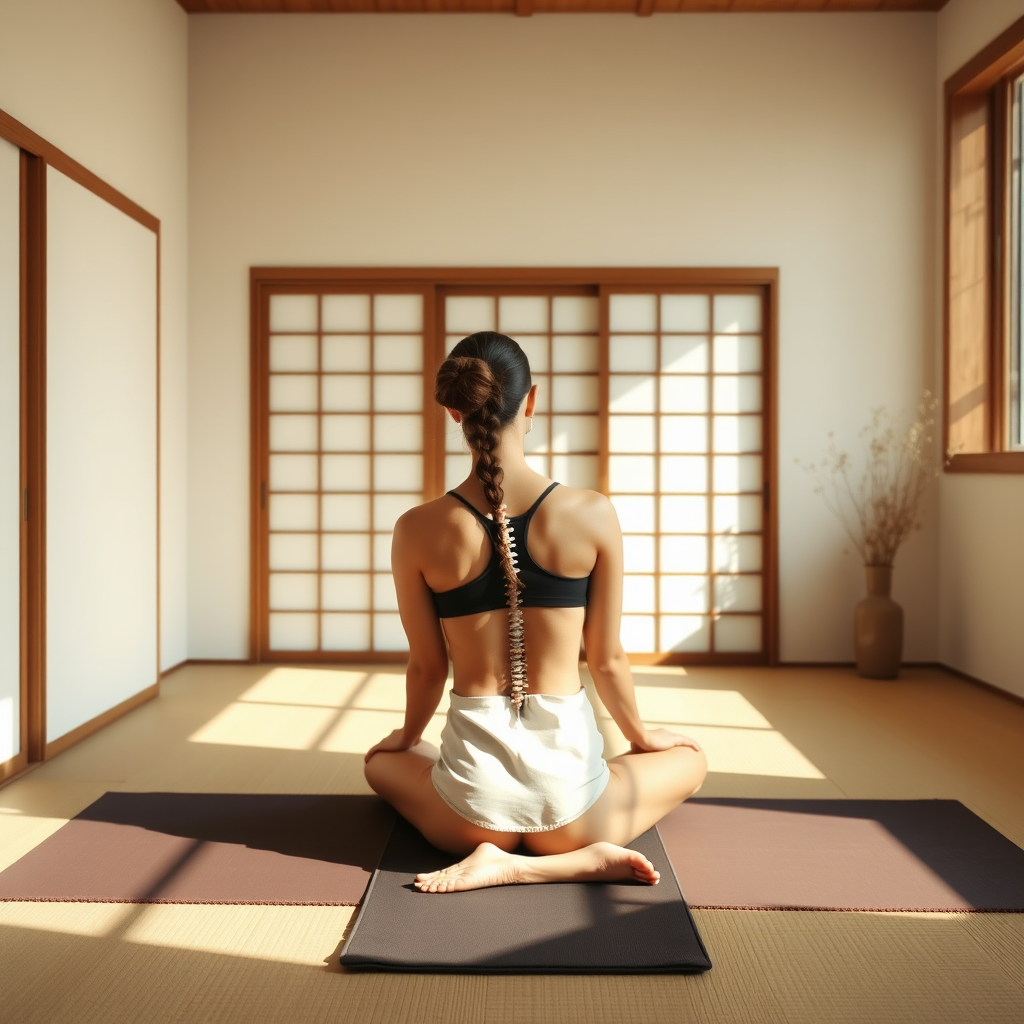
Gentle Forward Fold (Zenshin no Magari)
Sit with legs extended, feet flexed. Slowly fold forward from your hips, reaching toward your toes without forcing. Hold for 45 seconds while breathing deeply. This pose calms the nervous system and prepares your body for rest by encouraging introspection and release.
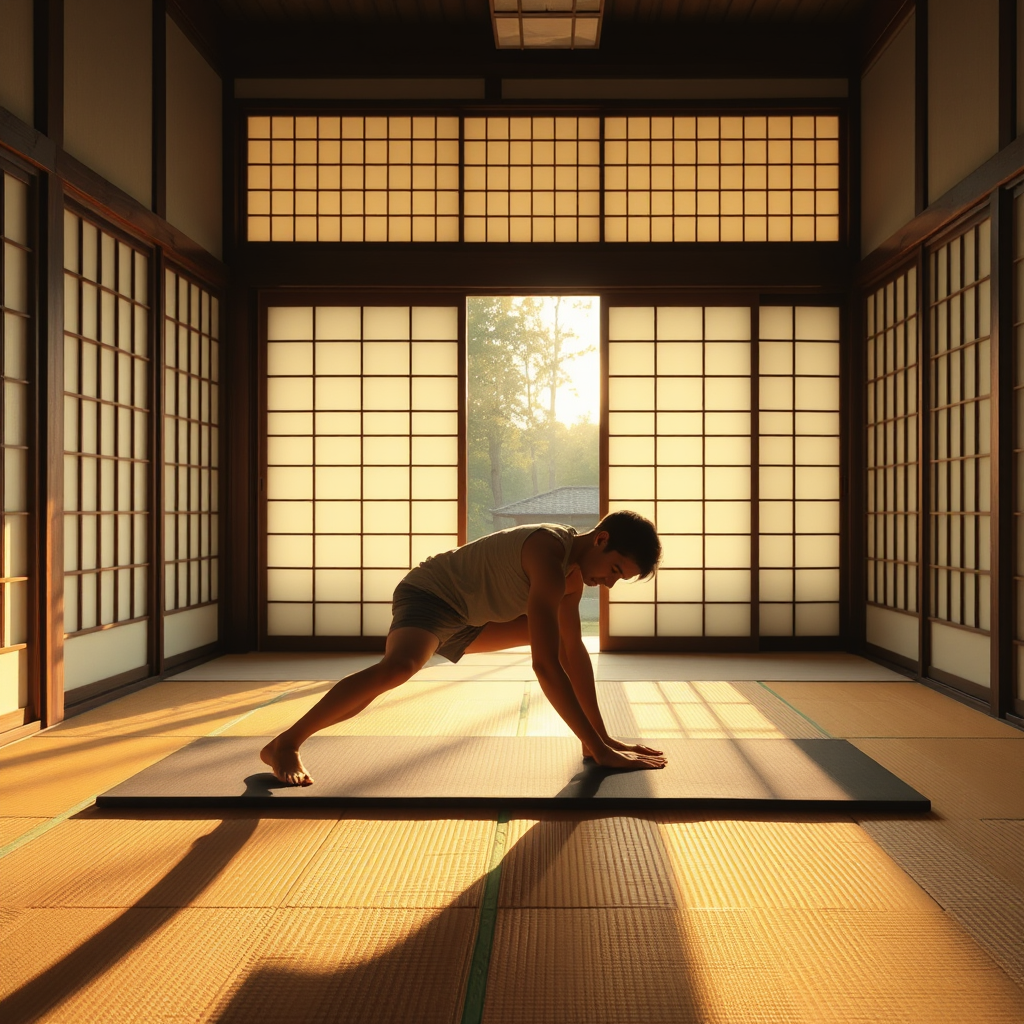
Traditional Breathing Techniques for Sleep
4-7-8 Breathing (Shi-Nana-Hachi Kokyū)
This powerful technique, adapted from ancient Japanese practices, activates your parasympathetic nervous system:
- Inhale through your nose for 4 counts
- Hold your breath for 7 counts
- Exhale completely through your mouth for 8 counts
- Repeat this cycle 4 times
Practice this technique consistently, and you'll notice improved sleep quality within a week.
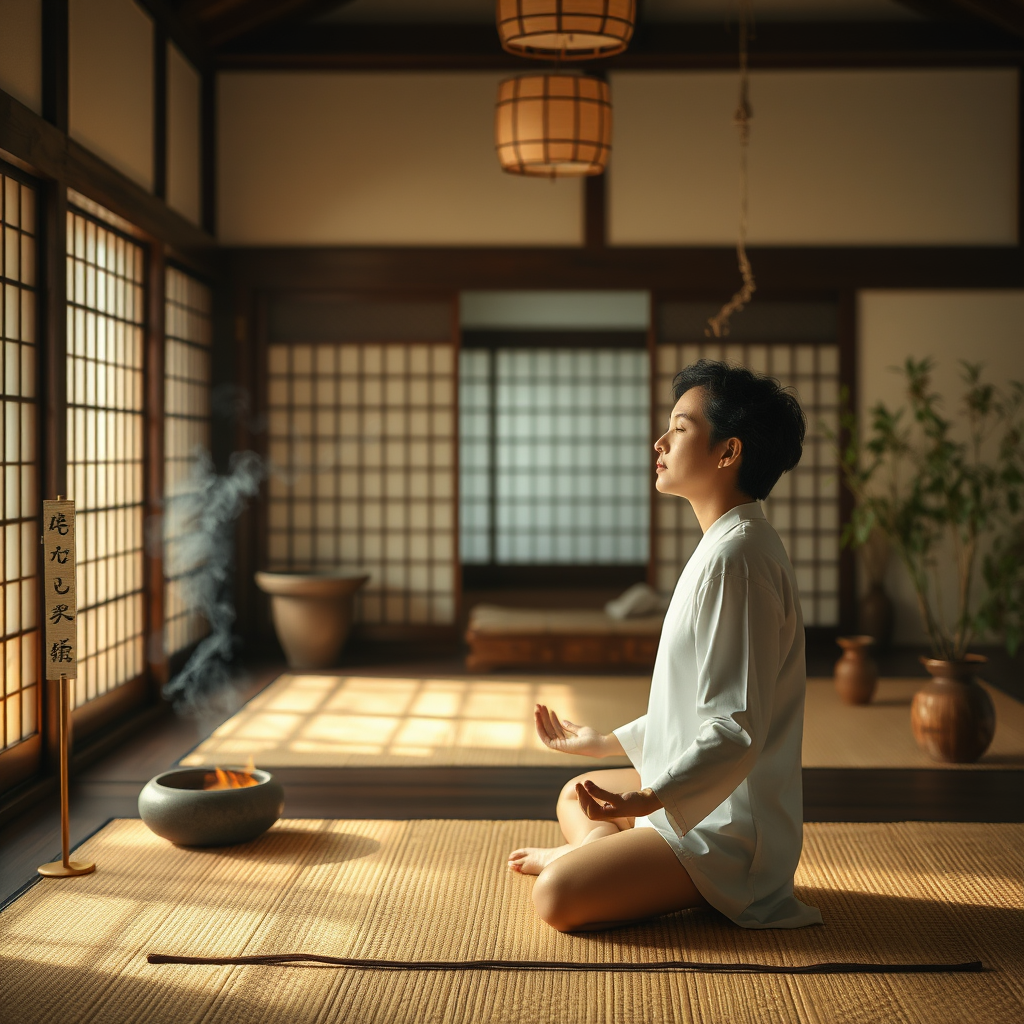
Ocean Wave Breathing (Nami no Kokyū)
Lie comfortably and breathe naturally through your nose. Create a soft "ocean wave" sound by slightly constricting your throat. This technique, similar to ujjayi breathing, creates a meditative rhythm that naturally slows your heart rate and prepares your mind for sleep.
Mindfulness Practices for Evening Calm
Gratitude Reflection (Kansha no Jikan)
Before sleep, spend 5 minutes reflecting on three positive moments from your day. This practice, deeply rooted in Japanese culture, shifts your mind from daily stresses to appreciation, creating a peaceful mental state conducive to restorative sleep.
Body Scan Meditation (Karada no Kansatsu)
Starting from your toes, mentally scan each part of your body, consciously relaxing any tension you discover. This systematic approach helps you become aware of physical stress and release it before sleep, promoting deeper rest and recovery.
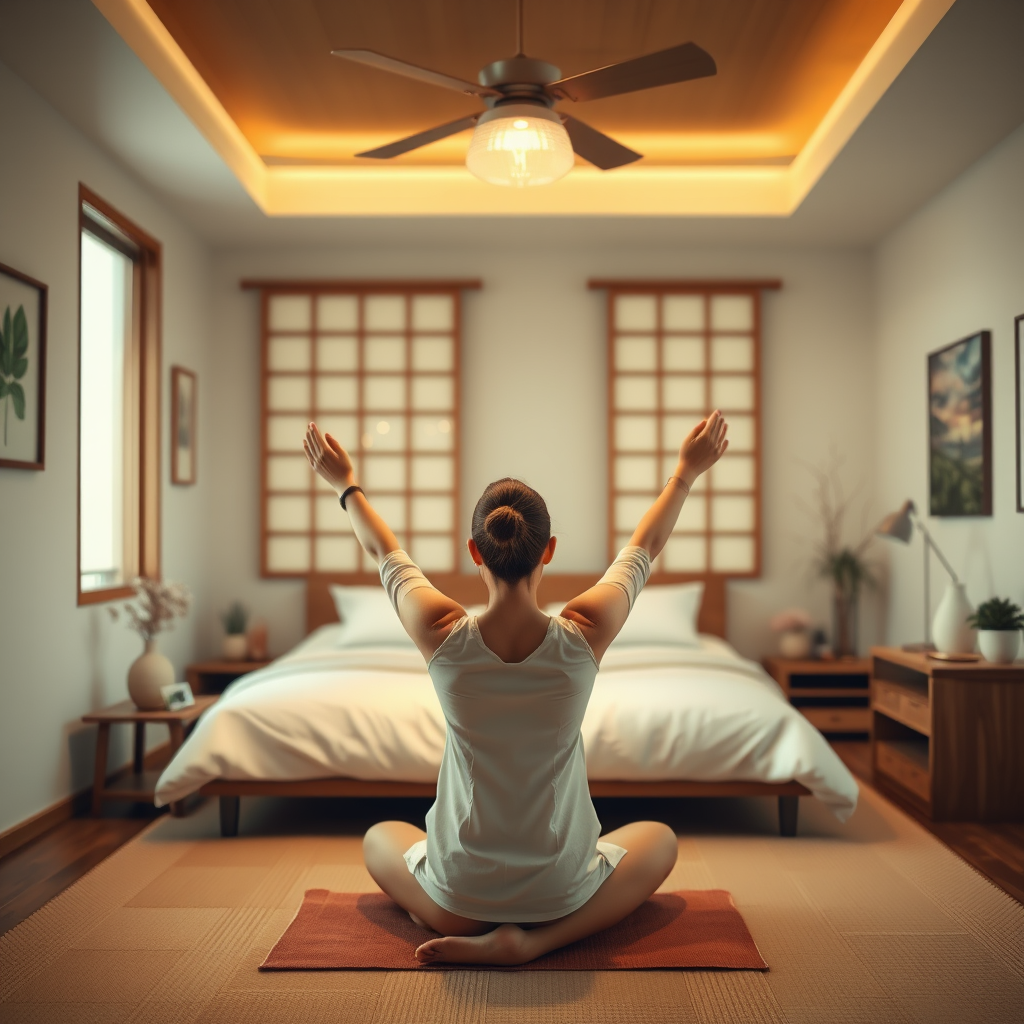
Creating Your Personal Evening Routine
Sample 20-Minute Evening Sequence
- Minutes 1-5: Gentle stretching exercises (neck, shoulders, spinal twist)
- Minutes 6-10: Forward fold and hip opening stretches
- Minutes 11-15: Breathing techniques (4-7-8 or ocean wave breathing)
- Minutes 16-20: Gratitude reflection and body scan meditation
Consistency is key to experiencing the full benefits of Japanese evening wellness practices. Start with just 10 minutes nightly and gradually extend your routine as it becomes a natural part of your day. Remember, this is not about perfection—it's about creating a gentle transition that honors your body's need for rest.
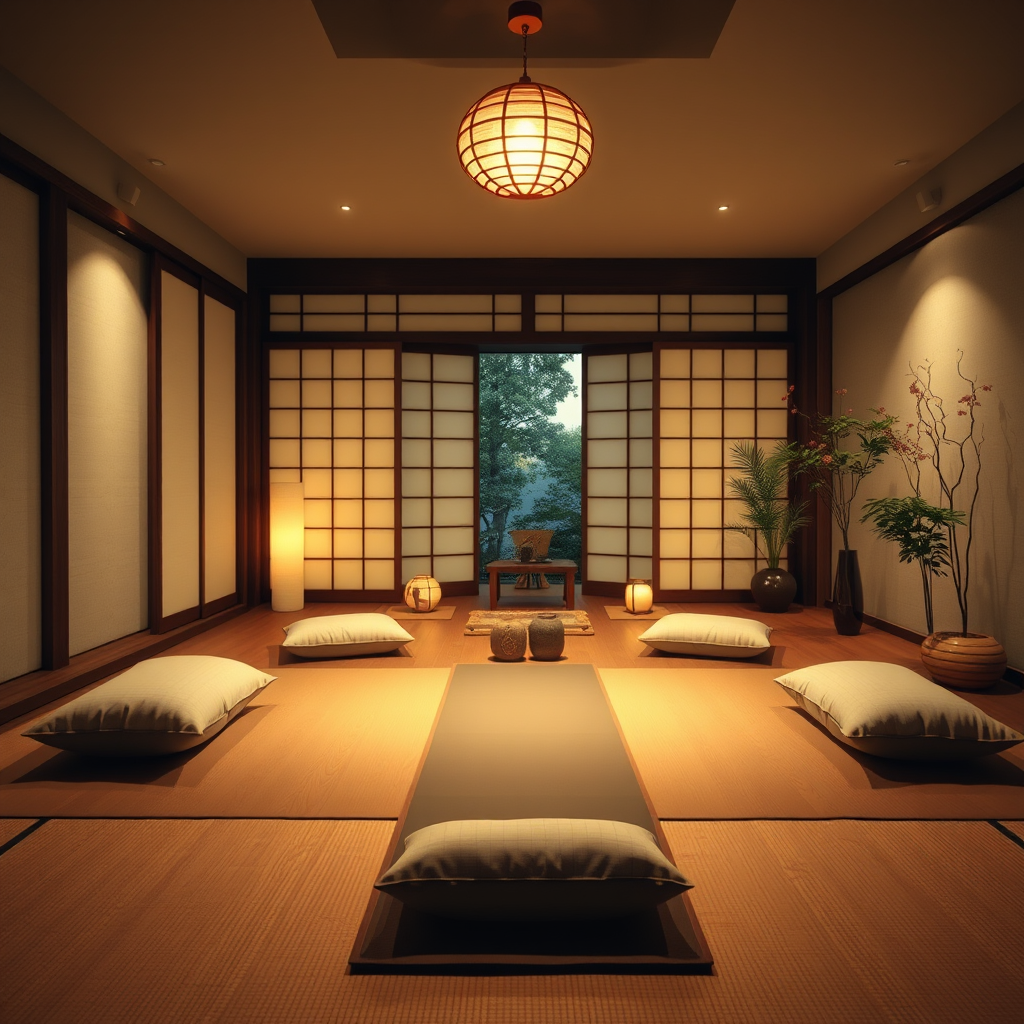
Tips for Success
Environment Matters
Dim the lights 30 minutes before your routine. Use soft, warm lighting to signal to your body that it's time to wind down. Consider using essential oils like lavender or chamomile to enhance the calming atmosphere.
Timing is Everything
Begin your evening routine 1-2 hours before your intended bedtime. This gives your body adequate time to transition from the active state of day to the restful state needed for quality sleep.
Listen to Your Body
Some evenings you may need more gentle movement, while others call for extended breathing practice. Adapt your routine based on how you feel, maintaining the core elements while allowing for natural variation.
Patience and Persistence
Like all wellness practices, the benefits of Japanese evening routines compound over time. Give yourself at least two weeks of consistent practice to notice significant improvements in sleep quality and overall well-being.
Embrace the Japanese Way to Better Sleep
The Japanese approach to evening wellness offers more than just better sleep—it provides a pathway to greater self-awareness, reduced stress, and improved overall health. By incorporating these gentle exercises, breathing techniques, and mindfulness practices into your nightly routine, you're not just preparing for sleep; you're cultivating a deeper connection with your body and mind.
Start tonight with just one or two techniques that resonate with you. As you experience the calming benefits, gradually expand your practice. Remember, the goal isn't to achieve perfection but to create a consistent, nurturing ritual that supports your journey toward better sleep and enhanced well-being.